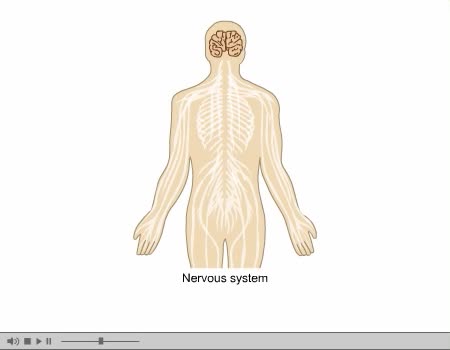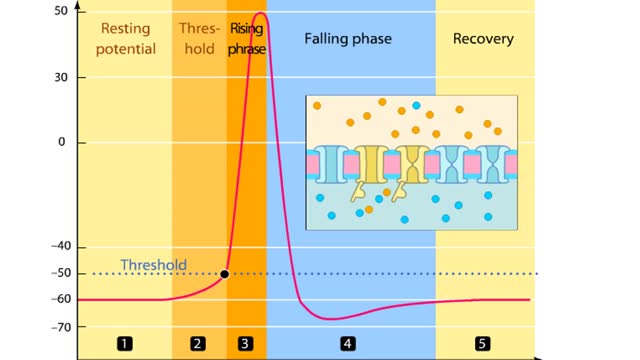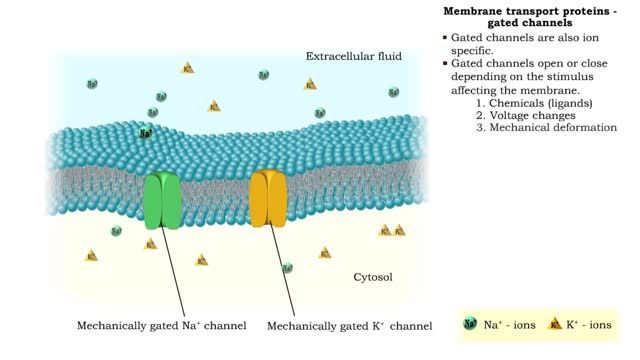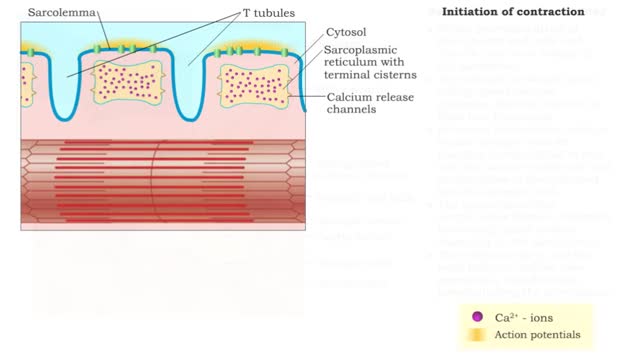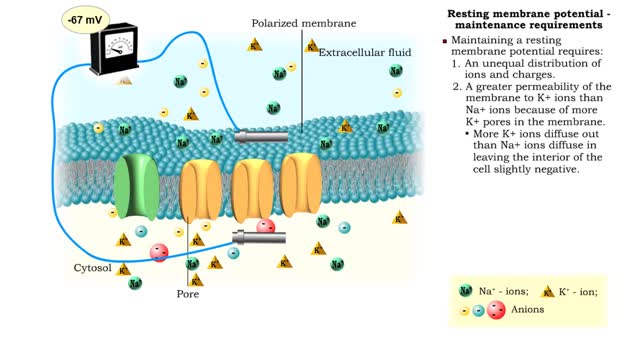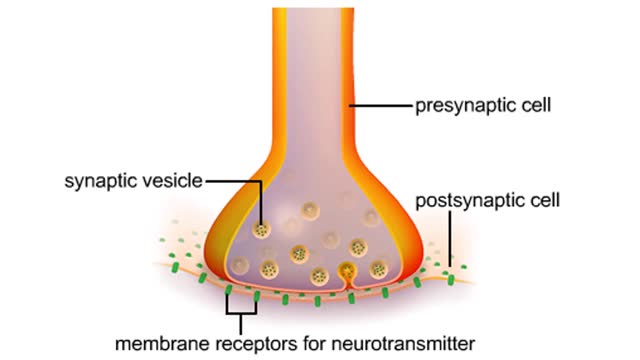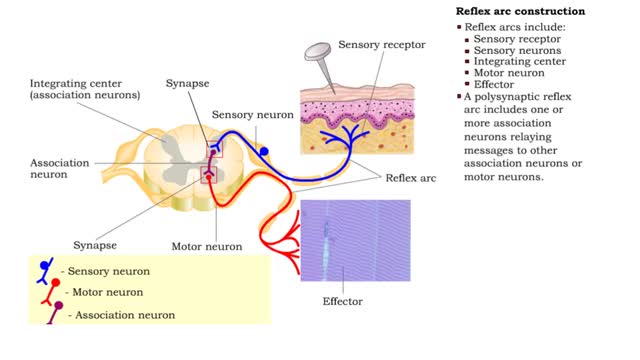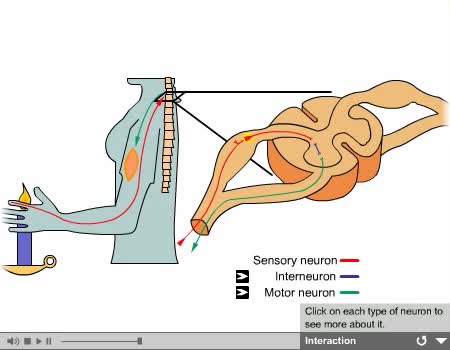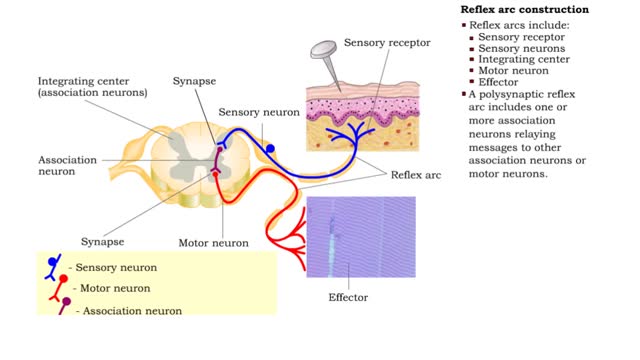Search Results
Results for: 'neuron's membrane'
By: Administrator, Views: 14286
In the nervous system, a synapse is a structure that permits a neuron (or nerve cell) to pass an electrical or chemical signal to another neuron or to the target effector cell. Synapses are essential to neuronal function: neurons are cells that are specialized to pass signals to individual tar...
Phases of an Action Potential - Resting Potential, Threshold, Rising, Falling, & Recovery Phases
By: HWC, Views: 10748
In this tutorial, we will review the phases of an action potential measured from a small area of a neuron's membrane. The action potential can be divided into five phases: the resting potential, threshold, the rising phase, the falling phase, and the recovery phase. When the neuron is at rest,...
Membrane transport proteins - pores, gated channels and pumps
By: HWC, Views: 11458
• a Three different types of membrane ion transport proteins are required to produce and carry electrical signals: • Pores • Gated channels • Na+/ K+ pump • Pores are always open and allow the diffusion of Na+ and K+ ions across the membrane, down their concentration gradients...
Nervous pathway to the Neuromuscular (NMJ)
By: HWC, Views: 11820
• A nervous impulse, also called an action potential, starts from the brain or spinal cord to signal skeletal muscle cell contraction. Action potentials continue along a motor neuron to the muscle cell. • The signal to contract must cross a synapse - the neuromuscular junction (NMJ) - betwe...
Resting membrane potential - electrical polarity and maintenance requirements
By: HWC, Views: 10983
• A resting membrane potential exists when there is a buildup of: 1. positive ions outside the membrane. 2. negative ions inside the membrane. • Membranes with opposing charges are said to be polarized. • The difference in charge applies only to the small distance across the membran...
By: HWC, Views: 8742
A neuromuscular junction is a chemical synapse between the axon endings of a motor neuron and a muscle cell. A narrow synaptic cleft separates the presynaptic cell (the motor neuron) from the postsynaptic cell (the muscle cell). The presynaptic cell contains vesicles filled with neurotransmitt...
By: HWC, Views: 11396
• Somatic reflexes are the rapid, predictable, and automatic responses of skeletal muscle to changes in stimuli. • A reflex arc is the pathway followed by the nerve impulse producing the reflex. • Reflex arcs include: • Sensory receptor • Sensory neurons • Integrating c...
By: Administrator, Views: 14476
Interneurons: - Are called central or associative neurons. - Located entirely within the central nervous system. - They function to mediate impulses between sensory and motor neurons.
By: HWC, Views: 11422
• Somatic reflexes are the rapid, predictable, and automatic responses of skeletal muscle to changes in stimuli. • A reflex arc is the pathway followed by the nerve impulse producing the reflex. • Reflex arcs include: • Sensory receptor • Sensory neurons • Integrating cen...
Advertisement



